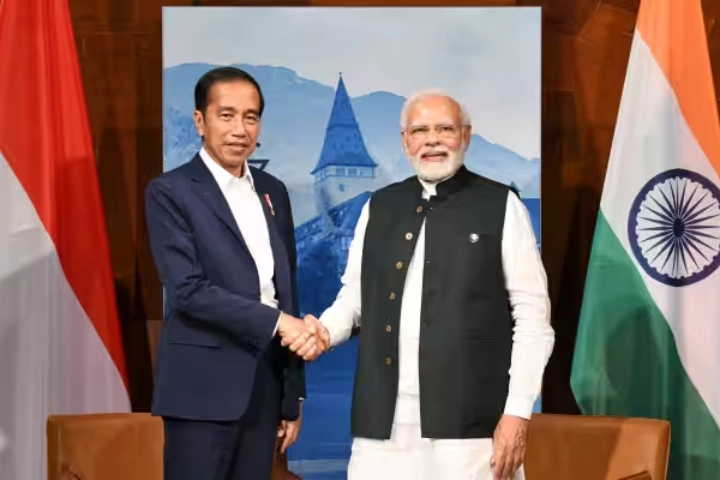With less than a month to go before Indonesia’s presidential elections, defence minister Prabowo Subianto enjoys a massive 20% lead over his nearest rival, the only question is whether that will translate into the votes he needs to avoid a runoff: which means on Feb 14 he must win over 50% of the vote. Subianto has accordingly done some smart maneuvering, taking on Gibran Raka as his running mate. Gibran is the son of current President Joko Widodo, and Subianto evidently hopes the former’s support base will back him.
The election is being closely followed in India given the growing economic relationship (close to $40 billion) and a slowly broadening political and strategic relationship.
“Indonesia’s importance as a strategic location to India cannot be over-emphasised,” said Pankaj Saran, head of the NatStrat think tank and former deputy national security adviser. He told StratNews Global in an interview that, “If you look at the Andaman Indira Point (the southernmost point in India’s territory) to Aceh in Indonesia the distance is only about 80-100 nautical miles. Indonesia also sits on important sea lanes such as Malacca Straits, the Sunda, and the Lombok making it imperative for us as a maritime security partner.”
China remains a common concern and although incumbent President Widodo is considered pro-Beijing, not least because of $130 billion in trade, there seems to be a souring of the relationship. Territorial disputes with Beijing over the Natuna Islands and the toppling of Ahok, the first Chinese origin governor from Jakarta, has strained ties.
Dr Satish Chandra Mishra, Senior Fellow at the Habibe Centre, a Jakarta-based think tank, believes that the China relationship is overstated.
“The Chinese-Indonesian population is only 3% while anti-China feeling continues to remain in the country. They have not forgotten the massive riots that took place in May 1998 in the aftermath of the East Asia economic crisis and this anti-China sentiment prevails even today,” he said, adding “This is in stark contrast to India which is viewed very favourably. Hindu temples, tales of the Ramayana and Mahabharata, and Bollywood films create a favourable impression of the country.”
Add to that India’s economic growth, public digital network and investment in social sector schemes, has drawn the attention of Indonesian leaders. Increasing exchanges, especially after PM Modi’s visit to Bali for the 2022 G-20 summit, has raised India’s profile.
But bureaucratic hurdles, tariffs, and the inability of India’s missions to coordinate with industry has ensured that a budding business relationship has been unable to develop so far.
“Our missions have not worked together with the private sector and the local government. This is in stark contrast to not just the Chinese but with the South Koreans, Japanese and the French who also invest heavily in Indonesia. As a result, even if a big company like Godrej comes in there is very little knowledge in Indonesia about it. There is a lot of work that needs to be done if we are to change this,” Mishra said.
These issues are valid. Hopefully, once the new president is in the saddle, the two sides will clear the decks for an ambitious agenda that will see even closer economic and strategic ties.
(The story is being republished courtesy StratNews Global)




















